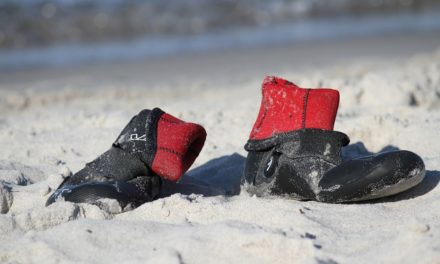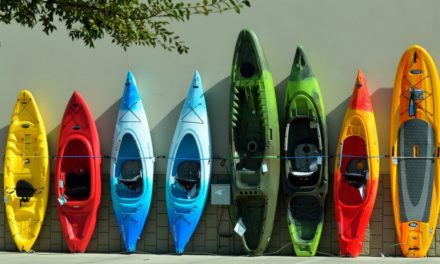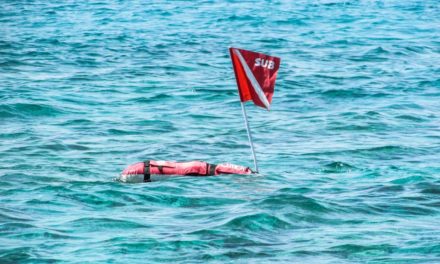Is a spearfishing license required in the US? The short answer is in most cases is a regular fishing license is required to spearfish in the US. The exact fishing license can vary from state to state and additional “add-ons” may be needed. These “add – ons” could be for different types of fish or for a particular region of a state.
You also need a license for spearfishing because of the equipment you’ll be using. Spearguns for one come with many regulations and you can’t use one without a license.
Moreover, through getting a license, you’ll become more familiar with the regulations that you need to adhere to, ensuring that your spearfishing activities are legal.
During spearfishing, you should commit to the guidelines provided for safe and ethical practices. These guidelines and regulations differ from state to state but mainly depict the following subjects:
If you are interested you can check out the best spearfishing equipment by clicking here.
Minimum and maximum size limits
In each state, there will be rules regarding the size of the fish you can catch; either minimum size or maximum size. These regulations exist to ensure that fish are left to reproduce enough before they are caught so as to reduce the impact on fish populations and preserve their species.
Fish you are allowed to catch
Depending on the state, there will be a list of fish that you are allowed to catch and fish that you are prohibited from fishing. This helps states regulate the underwater ecosystem, making sure that the sport does not have a negative effect on the environment.
Areas where you are allowed to Spearfish
Some states prohibit spearfishing in certain areas like protected marine areas or freshwater areas. Some even prohibit the possession of spearfishing gear near the said area. This may be based on the type of fish residing in such areas and is an attempt to reduce harm to the ecological system of the environment.
Purpose of spearfishing
Several states allow spearfishing for commercial purposes while others strictly prohibit any spearfishing for purposes other than recreational ones so it’s advised to check that your state regulations match your intentions before getting your license to make sure that any activities you carry out are legal.
You can easily find your state’s specific rules and regulations on several websites online.
So to put things simply, spearfishing without a license is considered to be a criminal offense in the US so, you will need a license to practice spearfishing in the US with varying regulations for each state.
Florida
In addition to your regular saltwater fishing license, you’ll need to get a lobster stamp if you intend on spearfishing in Florida. There are also a set of regulations you’ll need to follow, including the fish you’re allowed or not allowed to spear.
The rules set out in Florida state are mainly ones restricting spearing in certain areas and restricting spearing certain fish species.
As for non-residents, those above 65 years of age will not need a license to spearfish as long as they comply by the state’s set out rules and have a valid ID on them at all times.
The areas you’re not allowed to practice spearfishing are as follows:
- Any freshwater area (you’re also prohibited from possessing any spearing equipment near fresh water)
- Any protected area of water whether environmentally protected, recreationally, or parks
- Within 100 yards of a public place (including public beaches and commercial or recreational fishing piers)
- Within 100 yards of a jetty if any part of it lies above sea level
- Monroe County
In addition to following the recreational saltwater fishing rules, spearfishers must not spearfish any of the following species:
- Blue or White Marlin
- Sailfish, Swordfish, Spearfish
- Manta or Spotted Eagle Ray
- Sturgeon
- Sharks
- Bonefish
- Nassau or Goliath Grouper
- Tarpon
- Snook
- Spotted Sea Trout
- Blue or Stone Crab
- Red Drum
- Weakfish
- Pompano
- Ornamental reef fish
- Permit or Tripletail
- Caribbean Spiny Lobster
California
In California commercial spearfishing is illegal while only recreational spearfishing is permitted under a license. You can both spearfish in saltwater or freshwater, but you’ll need different licenses for both.
Non-residents can apply for a short-term license if they intend on coming down to California for a spearfishing trip.
And while most fish are legal to spear, some fish you’re not allowed to catch out of season, and those include:
- Red Abalone
- Giant Sea Bass
- Spiny Lobster
- California Grunion
For more specifics on which fish you’re allowed to spear and when in the state of California, you can visit https://www.wildlife.ca.gov/Fishing/Ocean/Regulations/Sport-Fishing
Washington
Washington allows you to fish in both saltwater and freshwater with a permit. In addition to having to get different permits for fresh and salt waters, Washington offers a wide array of licenses for spearfishing that fit several types of fishers.
Whether you’re a commercial or recreational fisher and whether you intend to use your license for a few days, a year, or a lifetime, the state offers licenses for all needs at different prices to accommodate for different fishers.
And like most states, there are rules and regulations you have to follow in Washington if you intend on spearfishing, although these rules are less strict those other states. For instance, the rules on size limits are very vague in comparison to Florida’s rules.
You’re not allowed to catch nor possess any of the following:
- Canary Rockfish
- Yelloweye Rockfish
- Sixgill, Sevengill, or Thresher sharks
- Pygmy Whitefish
- Margined Sculpin
- Olympic Mudminnow
Oregon
In Oregon, you’ll need a license to spearfish in saltwater, however, since freshwater fishing is prohibited, you don’t need to bother about a freshwater fishing license.
Unlike Washington, size limits apply in Oregon and you’re required to stick to the minimum size stated. You will also need to stick to the bag size limits whether daily or annually as stated on http://www.eregulations.com/oregon/fishing/general-statewide-regulations/
And even when fishing in salt waters, some species you’re prohibited from catching or possessing:
- Lamprey
- Chub
- California Roach
- Lahontan Redside Shiner
- Suckers
- Margined Sculpin
- Caribe Or Piranha
- Oregon Chub Of Hutton Spring
- Millicoma Dace
- Pit Sculpin
- Walking Catfish
- Foskett Springs Speckled Dace
- Malheur Mottled Sculpin
- Grass Carp
Texas
Like Washington, Texas also offers a wide array of licenses for both residents of the state and visitors to pursue spearfishing in both salt and freshwater. You will not need a license if you’re under 17 years of age or are older than 65 years.
You’ll still have to adhere to the rules and regulations for size limits regardless of whether you’re fishing in fresh or saltwater.
And although many fish species are legal to catch, you will not be allowed to catch game fish and those include:
- Bass
- Catfish
- Cobia
- Crappie
- Mackerel
- Marlin
- Pickerel
- Red drum
- Sailfish
- Seatrout
- Sharks
- Snook
- Spearfish
- Swordfish
- Tarpon
- Tripletail
- Trout
- Wahoo
- Walleye
North Carolina
In North Carolina, you’ll also need a license for spearfishing whether recreational or commercial.
A recreational license allows you to catch all finfish for personal consumption and not selling. The only species you’re not allowed to spear are the Red Abalone. Other than that, you’re free to catch whatever fish you may find.
However, if you’d like to sell your catch, then you should opt for a commercial license which will then allow you to trade your catch commercially.
Under both licenses, you’re required to stick to the catch size rules and regulations in the state of NC.
Hawaii
In Hawaii, regulations are a little different than the rest of the states where one can spearfish without a license. However, regardless of that fact, to sell the fish you catch, you’ll need a permit.
Hawaii has grown to be one of the most popular destinations for spearfishing and can offer a lot to both residents and visitors that intend to practice spearfishing. Although restrictions are very lenient in Hawaii, you’re still not permitted to spear fish near or in Marine Life Conservation Areas.
Do you need different licenses for different states?
As all fishing licenses, state residents can get a fishing license as long as they meet certain requirements. State-visitors can also acquire licenses for their fishing trips, however, sometimes; non-residents can use their state’s license to fish in different states as long as the requirements to acquire both state licenses are the same.
Here are a few of my top recommendations, I found super useful when spearfishing:
So where can you get a spearfishing license?
Usually, licenses are obtained through state agents, although an easier and simpler alternative to attaining your license is through dive stores. A license usually costs somewhere between $20 and $60 dollars depending on the state you’re getting it from.
Another option you have to get your license from is on the internet. Many spearfishers are now opting to get their licensing online through various official sources. Not only is this a much easier option that comes with the convenience of attaining your license from the comfort of your own home, but it would also cost the same as it would if you got it through a dive store.
For more on how to get your license and what type of license you’ll need for your state, you can visit https://fishandgamelicenses.org/fishing-license.html
You’re required to keep your license with you whenever you’re out fishing and after when you’re transporting fish so that you can present it to official personnel whenever you’re asked to.
And since the minimum age for using a speargun is 16 years, spearfishing licenses, unfortunately, cannot be obtained by individuals younger than 16 years of age.



![A Guide To Freediving Gear [For The Beginner]](https://spearoscout.com/wp-content/uploads/2019/03/Spearfishing-freedivng-440x264.jpg)

